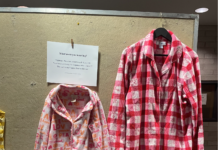We want to be clear: the Imprint opinion article released on September 25 titled “Can I get a refund?” is not an accurate portrayal of our efforts to communicate the introduction of the Student Choice Initiative (SCI) to students at UW.
The Imprint editor asserts that “[t]he system has changed, too bad someone forgot to tell students,” and that, “their student union didn’t think to tell them about opting out online.”
Four emails to students, a new Waterloo Undergraduate Student Association (WUSA) webpage dedicated to information regarding these changes, three Reddit AMAs, social media messaging, stories on our site, and a poster campaign on campus all took place over the spring term to inform students of their options.
Simply put, both WUSA, and the Graduate Student Association (GSA) supported numerous efforts to inform and empower students at the University.
A quick search for “Student Choice Initiative” on wusa.ca shows results including “2019 Financial Changes,” a new webpage that was created to outline the changes, cuts to OSAP, a 10 per cent reduction to tuition costs, and the Student Choice Initiative, which makes some of your student association fees optional, what they mean for students, what their options are, what WUSA is doing in response, and what students can do.
“Optional Student Fees: What You Need to Know,” an article from July with a self-explanatory title, and “Exec Answer Questions About Fees with Reddit AMA,” which recapped the top questions students had about SCI and our responses.
The first question addressed in that article outlines that, “you can opt-out or opt-in as many times as you’d like during the bill payment period, but once the payment period ends you can no longer make any changes. If you’ve already paid your fee but would like to opt-out during the payment period, just make those changes on Quest and the money will be credited back into your student account.”
“What’s even less known is that if a student wants to use their legal service, or get a paying job on campus, they’ll face additional screening,” the editor wrote.
But it’s unclear why he thinks this would be unknown to students, when this information is presented to each student when they pay their tuition and fees on Quest.
Detailed descriptions of each fee and information on the impacts of opting out of each fee are listed alongside their option to opt out.
“UW groups are now being asked to look up student numbers to see if they’ve paid the appropriate fee to ensure their eligibility for that service or job,” the editor continues, calling it “identity screening,” as if it’s unusual to verify that you’ve paid for the service you wish to access.
If you choose to not pay for a climbing gym membership at Grand River Rocks (GRR), for example, you’re not eligible to access their facilities.
If you head over to GRR, they’ll check to see if you’ve paid membership fees.
If you’ve paid, you’re good to go climbing. If not, you have the option to pay, or not access their services.
This is not an uncommon process.
If students don’t want to access events, student-run services like Sustainable Campus Initiative and the Bike Centre, or clubs, they don’t have to pay for them – just like if they don’t want to go to the climbing gym, they don’t have to pay for it.
Should students choose to opt out of a fee, that is their choice, just as it was their right to democratically choose which services have been funded through their student association fees for the last five decades through choosing their representatives, voting in the referenda, and participating in twice-yearly General Meetings.
To be clear, fees for services like mental health supports fall under Health and Safety and are considered mandatory by the government and are accessible to all undergrads.
The editor further claims that “[t]he only place for frustrated students is protesting in the street and advocating at the ballot box.”
Both WUSA and the GSA are advocacy organizations mandated to represent Waterloo students. We elevate the collective voice of student concerns to the University, the region, the province, and the federal government.
We can’t stress enough how much we want students to take part in their student associations’ advocacy efforts in order to effect the changes students want to see.
Run for Students’ Council or the Exec, vote in Referenda, engage at your General Meetings, reach out to the Exec directly on the issues that concern you.
There is power in numbers!
The scary thing is that the most at-risk from SCI is our ability to advocate for students: to represent the student voice and our concerns, to hold the government accountable, to take our future into our own hands and make our voices heard.
We are genuinely concerned that opinion pieces like this, that are both inaccurate and misleading, risk further weakening Waterloo students’ ability to unite our voices, by sowing seeds of division where none exist.
We are disappointed and disheartened that our efforts to keep students informed have been so grossly misrepresented.
Instead of being divisive in the face of changes from the provincial government that have the potential to negatively impact students, we should be supporting each other’s efforts to navigate and challenge this new reality, to communicate the value of options that are available and supporting students to make informed choices about their optional fees, and most importantly, to continue to advocate for a better student experience.































